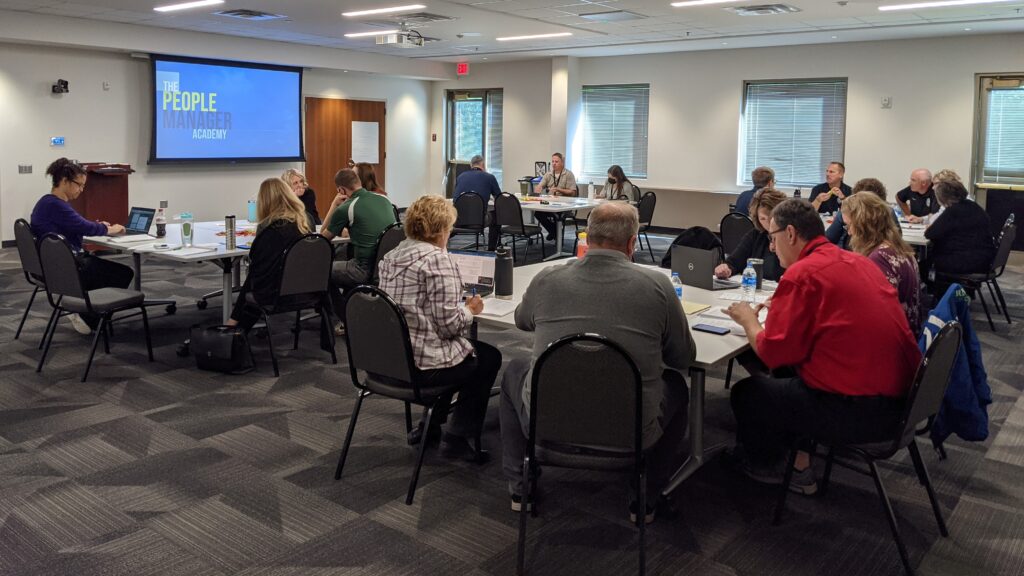
Burnsville University
The City of Burnsville believes in creating great experiences for their employees so that they do the same in their community.
With this in mind, the city launched Burnsville University in May 2021 to promote organizational culture, one of the Burnsville City Council’s six strategic priorities. Within this workplace culture, employees feel like their city is investing in them and recognizing them for their individual strengths and talents.
Burnsville University houses everything for city employee training and development, including a library of customized content of session workbooks and toolkits developed by city organizational development staff. In addition to serving as an effective tool to help staff deliver the best service to the community, Burnsville University also enhances connections between departmental staff. With a 48-page catalog of rich content covering onboarding, leadership development, professional development, safety, health, organizational learning, inclusion and belonging, and employee wellbeing, there are numerous development opportunities for staff throughout the year.
The Burnsville University concept was developed by City Manager Gregg Lindberg and Organizational Development and Strategic Initiatives Manager Bethany Brewer with a foundational belief in investing in the unique strengths that each employee brings to Burnsville.
While many of the courses are optional, the city requires some mandatory trainings like cultural competency, safety, and CliftonStrengths workshops for all employees. Many of the most popular courses are led by staff in their various areas of expertise, and sessions can run from one-hour Ted Talks to a leadership development academy spanning three years and consisting of three weekly, two-hour sessions.
So far, Burnsville University has been a success for the city. Staff are grateful the city is investing in them, departments are building stronger relationships, and the program was recognized as a 2022 LMC City of Excellence Award Recipient. Yet, the program continues to be refined as opportunities present themselves. For instance, Brewer and her team are focused on making the workshops more accessible for staff members with busy schedules.
Brewer has created a rich catalog of Burnsville-centric trainings with Burnsville University and suggests other cities interested in the BU initiative consider working with externally facilitated training sessions or a book club where staff members read a book and discuss a topic’s applicability for the organization. Many cities may find ICMA’s University online classroom a helpful starting point.
